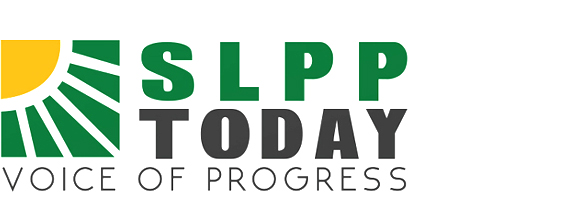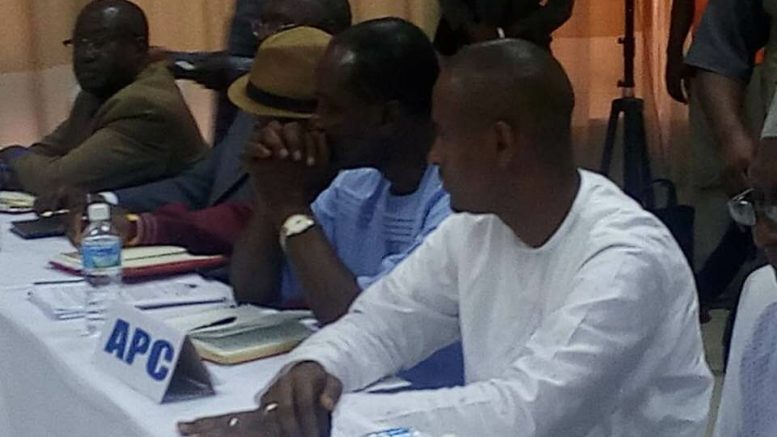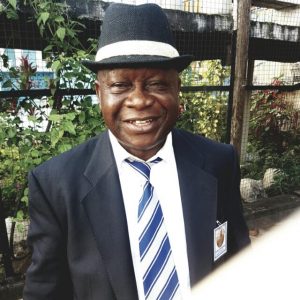Random Thoughts on the 2018 General Elections in Sierra Leone – Part I
The 2018 general elections in Sierra Leone has been essentially a contest between the forces of CHANGE and those forces that want to maintain the STATUS QUO. Almost all of the 15 political parties in opposition to the ruling All People’s Congress (APC) party campaigned on the platform of change.
From the results of the presidential elections, 57.33% of the electorate voted for change; only 42.67% voted for a retention of the status quo. It is worth noting that the drive for change goes beyond the cosmetic notion of the electorates wanting change for change sake. There are very deep-seated pertinent reasons why the change mantra resonated with the majority of the general populace.
A fundamental reason is that the current government that wants to retain power has fatally polarised this small nation not only on regional lines but also on social/class lines. The majority of the development intervention has been concentrated in the North of the country while marginalising the South and East.
One only needs to travel to and spend one night in each district headquarter town across the country and the stark reality of the polarisation of our country will be driven home.
I recently visited Bo that used to be the second capital city and I was shocked to discover that it was normal for even the university campus there to go 4-5 days continuously without a spark of electricity!
The main road to the university campus (which happens to be the gateway to the headquarter of Bonthe District, the home of the presidential candidate for the main opposition Sierra Leone People’s Party, SLPP) is rugged and full of large potholes; the students that live in hostels and digs around the campus are condemned to the fate of persistent lung diseases arising from continuously inhaling large quantities of dust raised by vehicular traffic.
Compare this to the splendour of Makeni – the hometown of outgoing President Ernest Koroma – that has now taken over as the 2nd capital city, with about 80% of the roads well constructed and paved and with almost 24/7 supply of electricity.
Kenema, the capital of the Eastern province, is in an even more sorrowful dire strait. The same profile of marginalisation goes for the distribution of the national cake in terms of appointments to government jobs and even award of scholarships/bursaries.
In a country where the private sector (that should act as an alternative livelihood provider) is weak and challenged with various shenanigans and where there is no formal/official welfare system other than the informal age-old extended family system (wherein one breadwinner in a family or clan is obliged to thinly spread his/her resources among a host of nuclear and extended (non-nuclear) family members the effects of such marginalisation of large sectors of communities can be very telling.
It is clear that these marginalised communities will not vote for a party/system that is responsible for their demise/plight. Surely they’ll prefer to vote for a party/system that will ensure a change of the predicament for the better.
In doing so it’s logical to vote for a party that has the greatest chance to unseat the incumbent that has put them in their various holes.
This is what I call informed voting and not tribalism!
What I consider as tribalism is when a people have been thoroughly economically and materially marginalised, reduced to living on handouts, and yet chose to vote for a political party/system that is responsible for their predicament just because those at the helm of that party/system belong to the same tribe.
This is what I call zombie or “Tolongbo” mentality!
Recall that in 2007 when the people (including in the South and East of Sierra Leone, the traditional strongholds of the Sierra Leone People’s Party) were similarly fed up with the SLPP and were especially not convince that that party had chosen an inspiring candidate that’ll deliver change of their situations they voted against the SLPP.
The people of my constituency, in Bonthe District, did not only vote out the sitting SLPP Parliamentarian they also voted, in large numbers, for the current outgoing President Ernest BaiKoroma even though the vast majority of them had never set eyes on him.
Nobody talked about tribalism then but this time the same people are now labeled as tribalists.
The people of the North and West reciprocated this time and all of a sudden the tribal flag has been raised! Unfortunately, the press and civil society who should be analysing and rationalising these issues with a view to achieving national cohesion are the very ones that want to give space to tribal sentiments to flourish.
Perhaps I should remind all of us that was under our very noses that for 10 years President Koroma systematically polarised this nation without calling him to book which makes all of us culprits.
My advice to the presidential candidate of the Sierra Leone Peoples Party is to publicly declare his willingness to form a government of National Unity when he wins and to run a government based on meritocracy rather than on primordial linkages and cronyism as it is presently the case.
These can serve as the stepping stones for building a lasting foundation for national cohesion and a more wholesome society.
Unfortunately, I cannot give the same advice to the presidential candidate for the All Peoples Congress party – although he is a friend and brother – because his party has had the opportunity to do so for 10 years and has failed to do so.
I know for Maada Bio (who hails from arguably the most marginalised district of Bonthe, with some naturally arguing for some form of affirmative action) it will be a difficult balancing act but he will receive greater resonance with the electorates if he promises to prioritise meritocracy over cronyism and make this the cornerstone of his administration.
Let me end this section of my Random Thoughts by pondering the following.
For capitalist democracy, like the one we have plumped for, to hold roots in a wretchedly poor country like ours can be very challenging without putting certain fundamental structures in place.
First, all a capitalist system cannot thrive without a period of wealth/capital creation. The first fruits of the created wealth should a welfare system or some form of a genuine safety social net for vulnerable groups which helps to piggyback democracy itself.
Those days when plunder, piracy, slavery, serfdom, etc. used to be the instruments for wealth creation are now gone – although our brothers in the APC have selfishly tried some of these lately on the local front; strategic human resource management, discipline and prudent economic management and visionary political leadership must now be the coinage/platform for wealth creation.
Dr. Thomas B. R. Yormah is Associate Professor of Chemistry at Fourah Bay College, University of Sierra Leone. You can reach him by cell phone at Tel. +232 76 626488; +232-30 230500 or by email at tyormah@gmail.com also tom_yormah@gmail.com.





